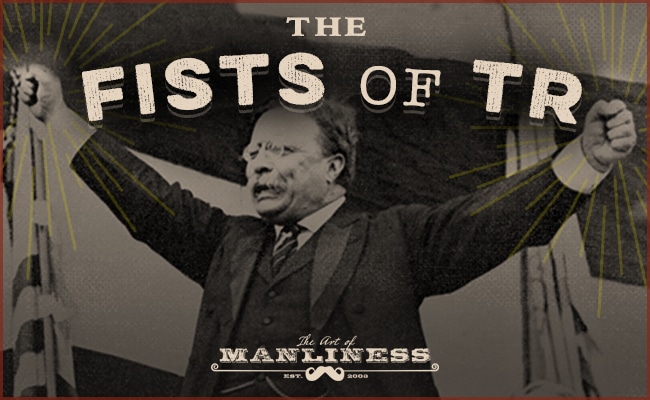
As Teddy Roosevelt is the patron saint of the Art of Manliness, I am of course really looking forward to watching Ken Burns’ new documentary on his life (and that of his other famous relatives) later this month. In the preview to the film, the narrator discusses TR’s early years:
“He seemed infatuated with everything, so long as it provided him with the opportunity to excel. He was in almost perpetual motion, riding, swimming, shooting, competing in the long jump and 100-yard dash against his brother and his cousins. He rarely won, but he always tried.
And in between, he devoured books and liked to recite poetry by the hour to his New York neighbor and sometime sweetheart Edith Carrow.
‘His energy seems so superabundant,’ his father wrote, ‘that I feel it may get the better of him in one way or another.'”
In commenting on TR’s very active life, historian Patricia O’Toole offers a most interesting observation:
“I think if he were a little boy today, he might be given Ritalin and grow up to be a salesman of some sort and we would never have heard from him again.
Look at photographs of him. Whenever he’s seated, if he has a hand on a desk or a hand on his knee, it’s always in a fist. There’s all that coiled energy. It’s not—it’s not anger, it’s just energy coiled, waiting to be let loose.”
I thought this was a truly fascinating observation and decided to go digging through hundreds of archival photographs of Teddy to see the phenomenon for myself. And indeed, in photo after photo, no matter what TR is up to, his hands are balled into fists. He often makes an improbable attempt to stick his fist into his pocket. Even when he is “in repose” his fingers seem to instinctively inch towards his palms.
This manifestation of coiled energy was hardly skin deep. TR carried the vigor of his boyhood through to the end of his days. And he learned how to harness it too, so that it was not scattered and diffuse; it did not lead to a tragic self-immolation as it does with some men. He channeled his abundant energy into a laser beam of strength, spirit, and drive that he could then focus on any endeavor he pursued. His fire and fight allowed him to accomplish the following during his 60 years of life:
- Worked as state legislator, police commissioner, and governor in New York
- Owned and worked a ranch in the Dakotas
- Served as Assistant Secretary of the Navy
- Fought as a Rough Rider in the Spanish-American War
- Served as President for two terms, then ran for an unprecedented third term
- Became the first President to leave the country during his term in order to see the building of the Panama Canal
- Wrote 35 books
- Read tens of thousands of books — several a day, in fact, and in multiple languages
- Discovered, navigated, and then named a completely uncharted Amazonian river over 625 miles long
- Earned the Nobel Peace Prize and the Medal of Honor (posthumously)
Roosevelt infused vitality and virility into every aspect of his life. He practically bounded from room to room, giving hearty handshakes, slapping backs, and grinning ear to ear. Even as he got involved in politics, he exercised regularly and took up boxing, tennis, hiking, rowing, polo, and horseback riding. As President, he took visiting leaders and dignitaries on long hikes and up rock faces in the parks around DC. As governor of New York, he boxed with sparring partners several times a week, a practice he regularly continued as President until one blow detached his left retina, leaving him blind in that eye. Thereafter, he practiced jiu-jitsu and continued his habit of skinny-dipping in the Potomac River during winter.
TR not only approached the “practical” functions of his life with irrepressible energy, but championed the pursuit of virtue with equal fervor. As he barnstormed around the country, giving up to 20 speeches a day, sometimes for just a few minutes from the back of a train, he never tired of beseeching citizens to live uprightly and to strive for what he considered the 3 cardinal virtues: decency, courage, and common sense.
“Precept is a very good thing, but to my thinking an ounce of practical energy is worth any amount of precept without action.” -TR
Operating with this kind of epic level of vim and vigor was part of what TR called living the strenuous life — the only kind of life fit for those who wished to live and die as men. For the ancient Romans, energy was manliness, and Teddy showed the possibility of embodying this definition of manhood even in the 20th century.
Below are my favorite photographs of TR’s fists; may they stand as a reminder to live with moxie and might and to get off the couch and into the arena!
The Strenuous Life
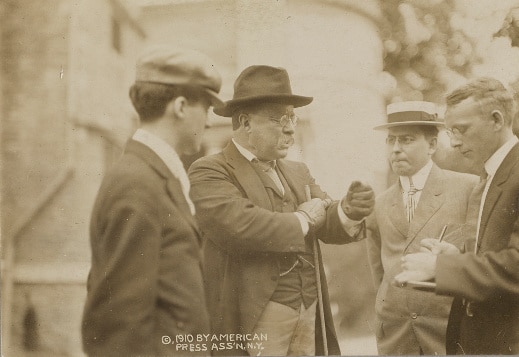
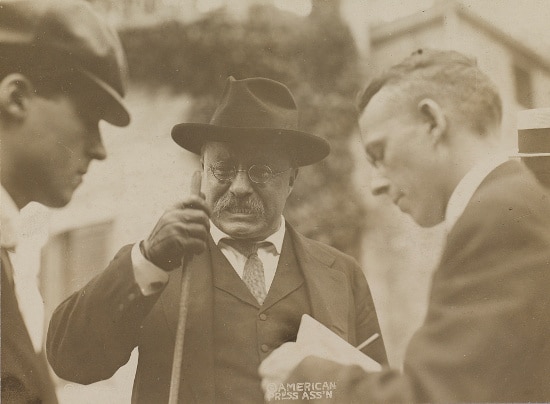
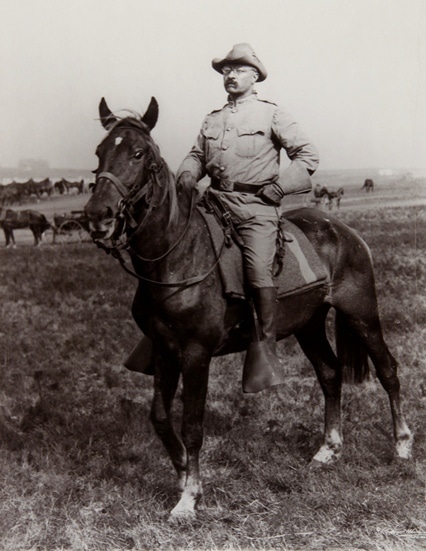
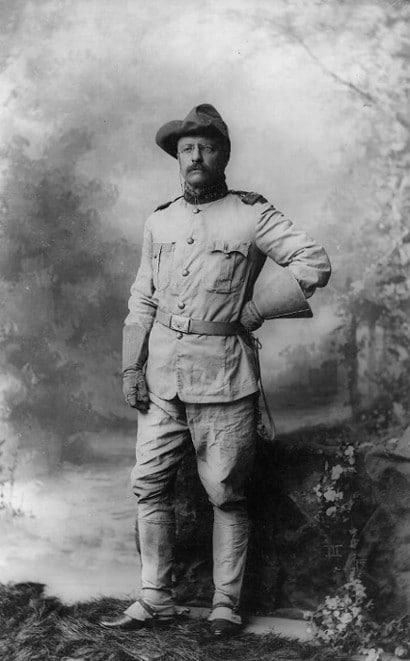
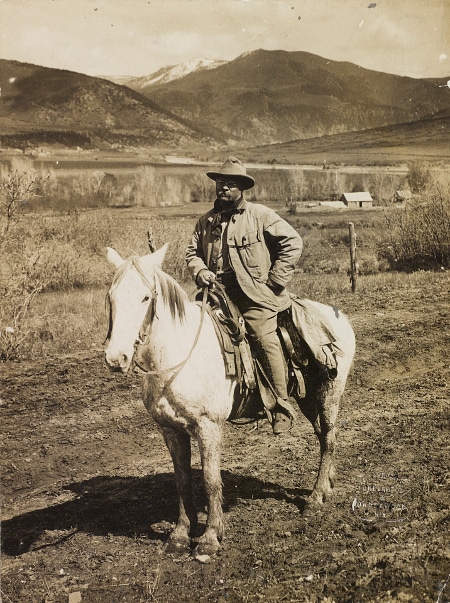
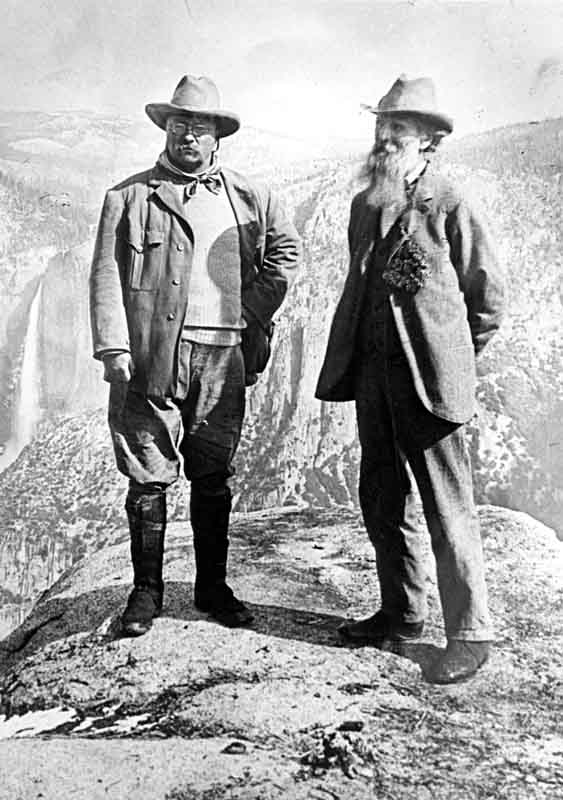
On the Campaign Trail
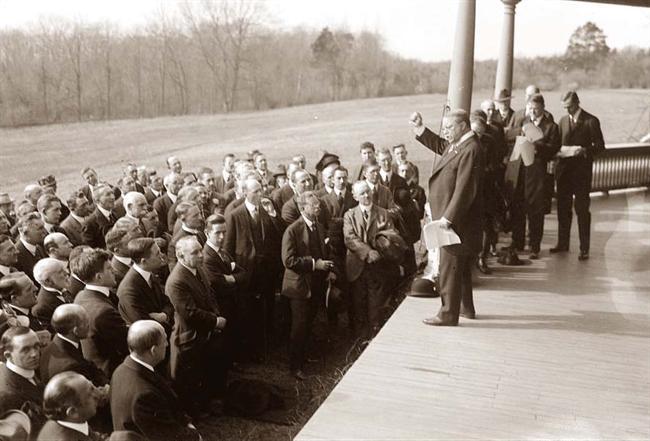
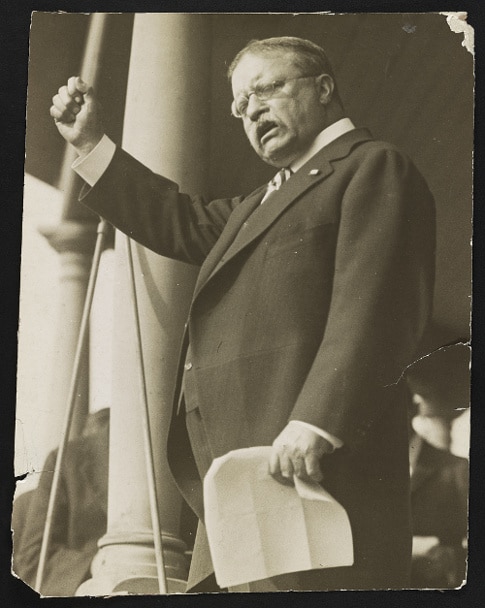
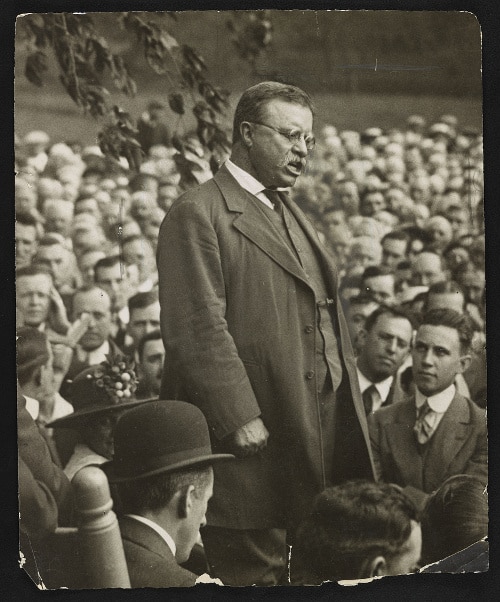
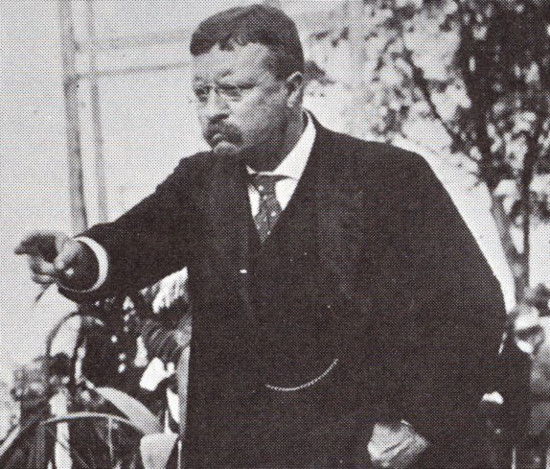
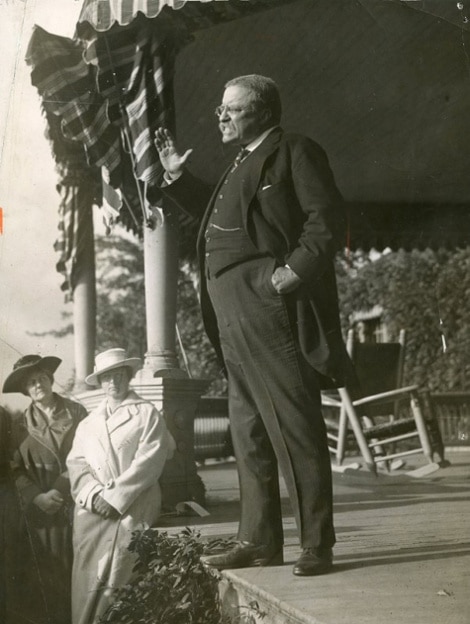
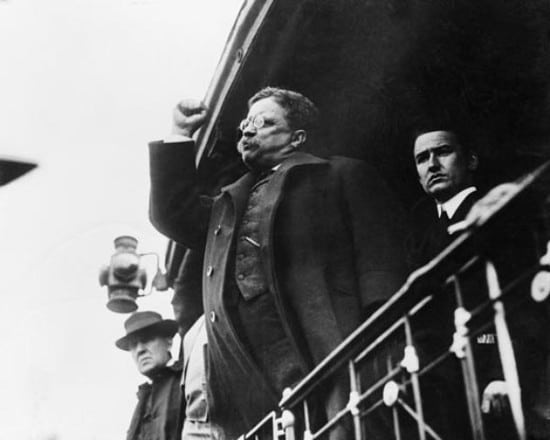
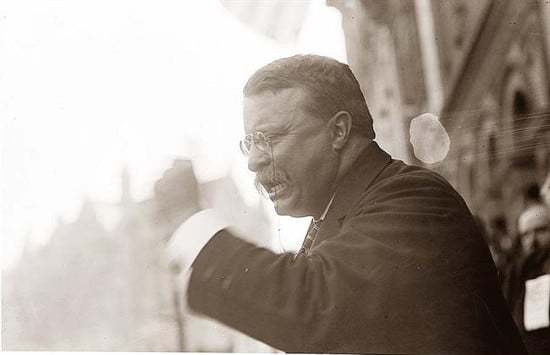
“In Repose”
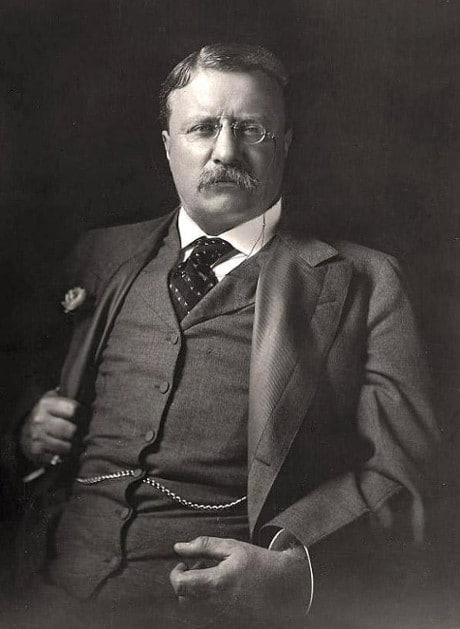
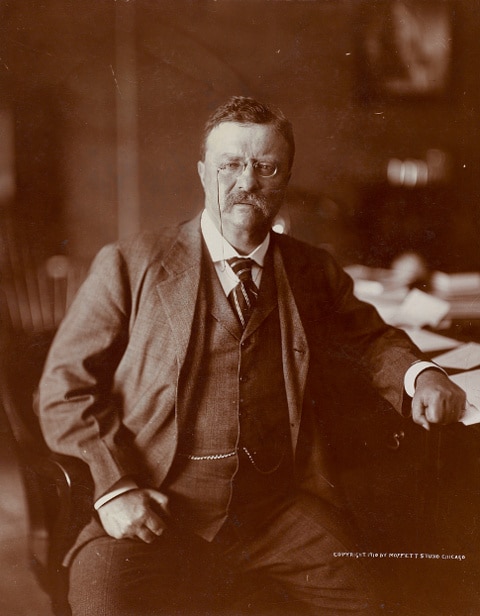
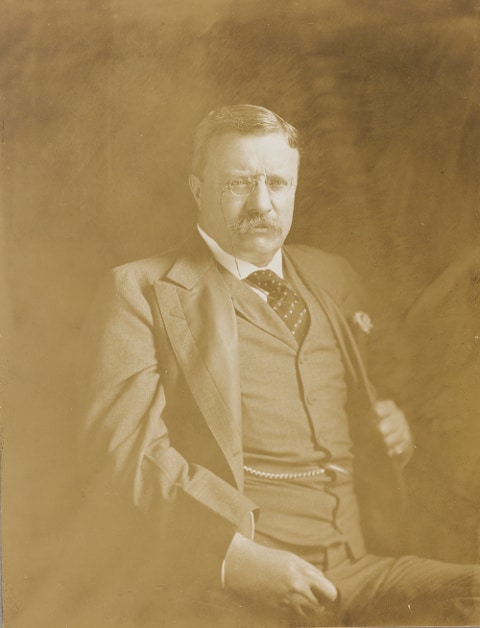
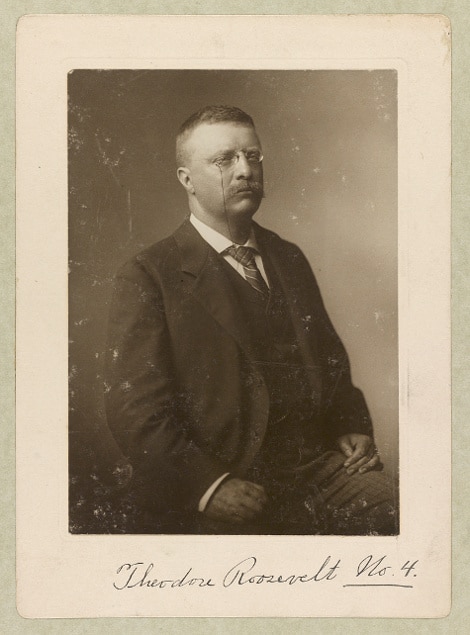
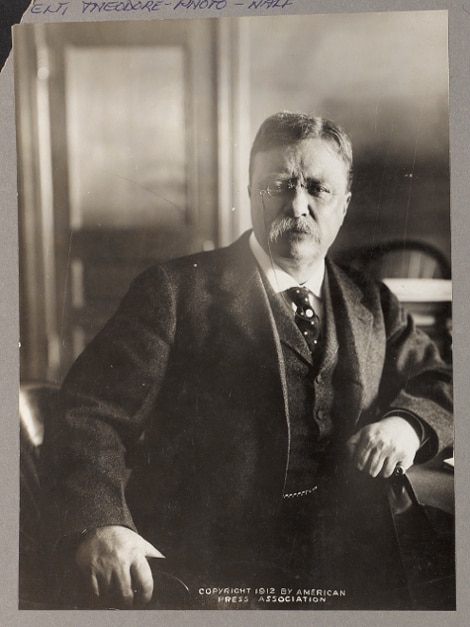
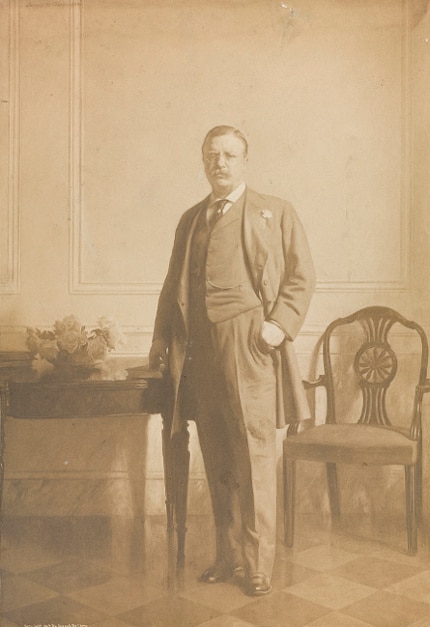
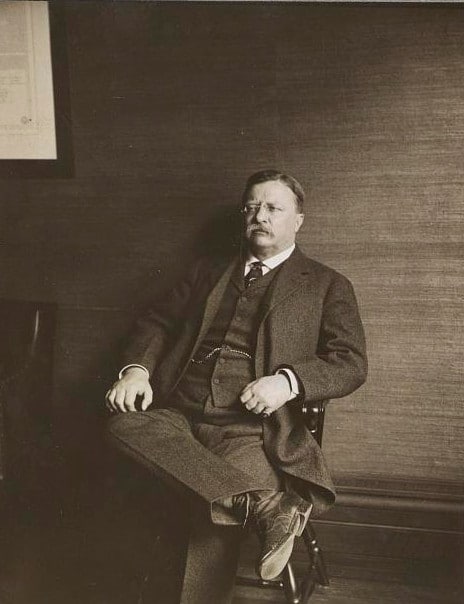
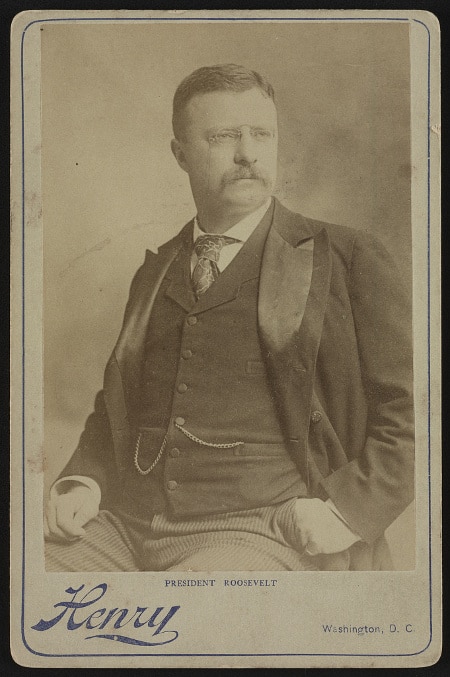
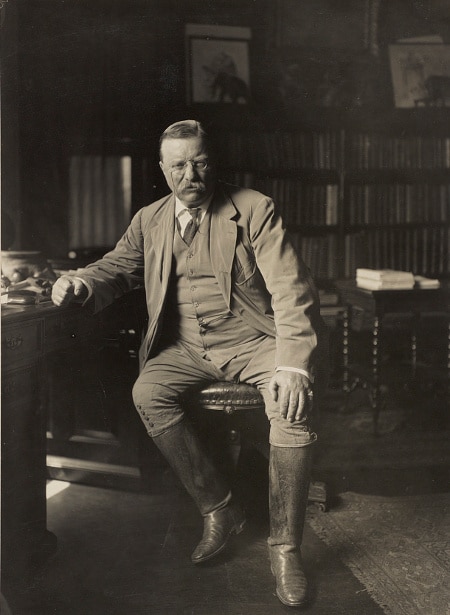
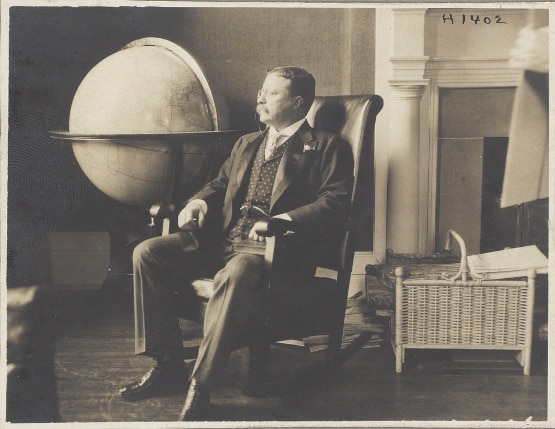

“In war you needed to have the man decent, patriotic, but, no matter how patriotic he was, if he ran away he was no good. So it is in citizenship; the virtue that stays at home in its own parlor and bemoans the wickedness of the outside world is of scant use to the community. We are a vigorous, masterful people, and the man who is to do good work in our country must not only be a good man, but also emphatically a man. We must have the qualities of courage, of hardihood, of power to hold one’s own in the hurly-burly of actual life. We must have the manhood that shows on fought fields and that shows in the work of the business world and in the struggles of civic life. We must have manliness, courage, strength, resolution, joined to decency and morality, or we shall make but poor work of it. Finally those two qualities by themselves are not enough. In addition to decency, and courage, we must have the saving grace of common sense. We all of us have known decent and valiant fools who have meant so well that it made it all the more pathetic that the effect of their actions was so ill.” -Theodore Roosevelt


